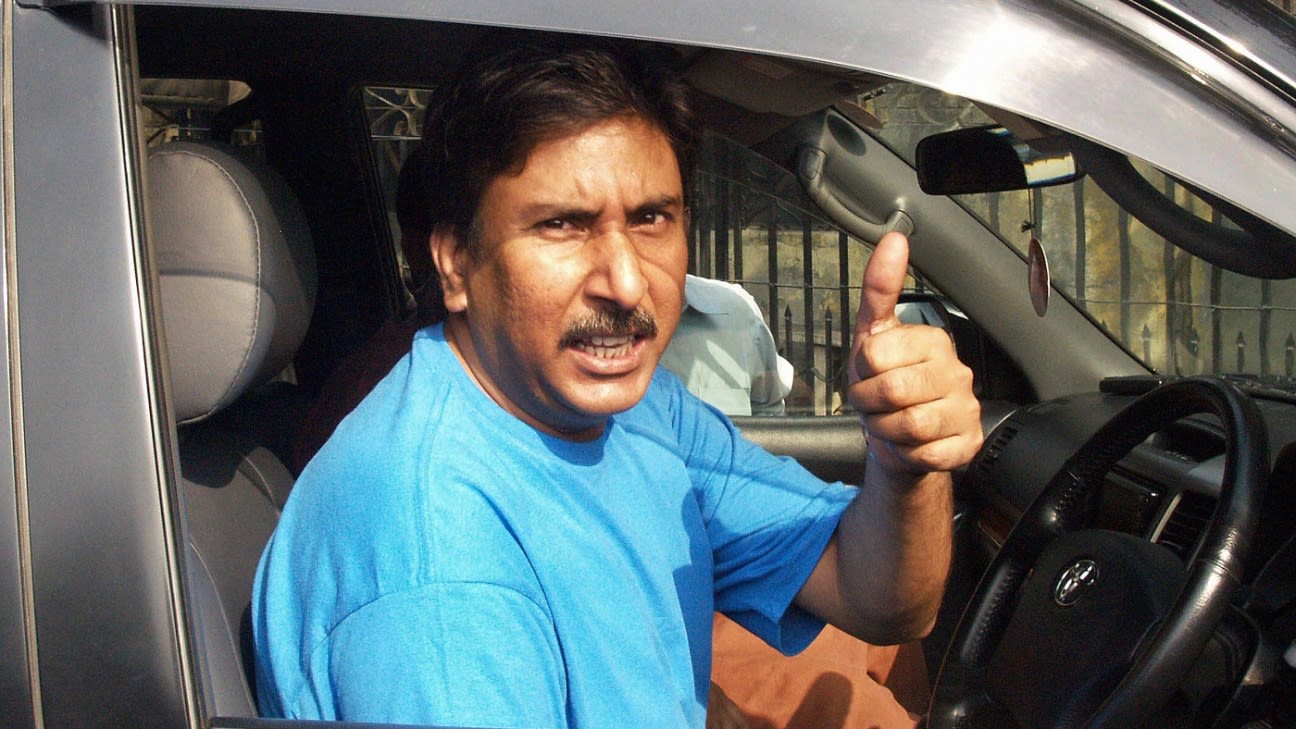
Saleem Malik's bid to get a clean chit for his credibility was frustrated once more, with the independent adjudicator, Justice Fazal-e-Miran Chauhan terming the process by which Malik was trying to obtain an NOC for his integrity as "unnatural". He said Malik did not need a character certificate from the PCB, and should instead demonstrate his credibility "independently", while ruling that any employer had the right to refuse applicants if they weren't satsifed.
This was his third attempt in the last four months to get a clearance certificate on his integrity, only for his hopes to be dashed each time. Malik, 57, wished to clear his name but did not wish to engage with the PCB inquiry pending against him. His case centered on the content of the transcripts from a video recording from 25 April 2000 at a restaurant in London that reportedly caught Malik talking about fixing matches and potentially corrupting games in exchange for money. The PCB believed the transcripts put Malik's integrity into question, while the cricketer challenged the credibility of the transcripts themselves.
The transcripts were sent to the PCB by the ICC on 25 May 2000, but the content of the documents was never officially verified against the original tapes. Malik claimed that he did not need to reply to tapes whose verification hadn't been established. The judge noted that PCB was relying on transcripts for which they had failed to produce the original tapes, or witnesses to prove that the transcript recorded in the conversation was authentic. "Since the recording of the transcript is not proved, it cannot be used against the appellant [Salim Malik]," the judge remarked in the judgment.
However, the judge went on to reflect on Malik's past record, noting the Qayyum report judgment in 2000, which recommended he be banned for life and fined. The verdict also recorded his 2014 written apology to the PCB chairman in which he had made in which he appeared to "accept my wrongdoing" and "apologise to the fans and start my rehabilitation process".
The judge went on to note that Malik had shown no interest in undergoing the PCB's rehabilitation programme, and remarked that the fact he had admitted his wrongdoing meant there was questions to be answered. But the ultimate point that effectively ends Malik's latest push to get the PCB to reintegrate him into cricket was that the adjudicator went on to note any organisation had the right to "verify the credentials of applicants and if not satisfied, has every right and authority to refuse or reject their request/application. The respondent had every right or authority to verify the conduct of the appellant. Respondent after verification, if satisfied, may grant him permission to enter in the fold of cricket."
Malik's cricketing career was ultimately sullied by the match-fixing scandals. In a judicial inquiry - that began in 1998 and continued for 13 months - he was found guilty of bribing Australian cricketers Shane Warne and Mark Waugh to lose the 1994-95 Karachi Test. Malik was fined Rs 1 million and banned for life in 2000, but eight years later his sentence was overturned by a Lahore sessions court, allowing him theoretically to return to the fold.














 Phone: (800) 737. 6040
Phone: (800) 737. 6040 Fax: (800) 825 5558
Fax: (800) 825 5558 Website:
Website:  Email:
Email: 






